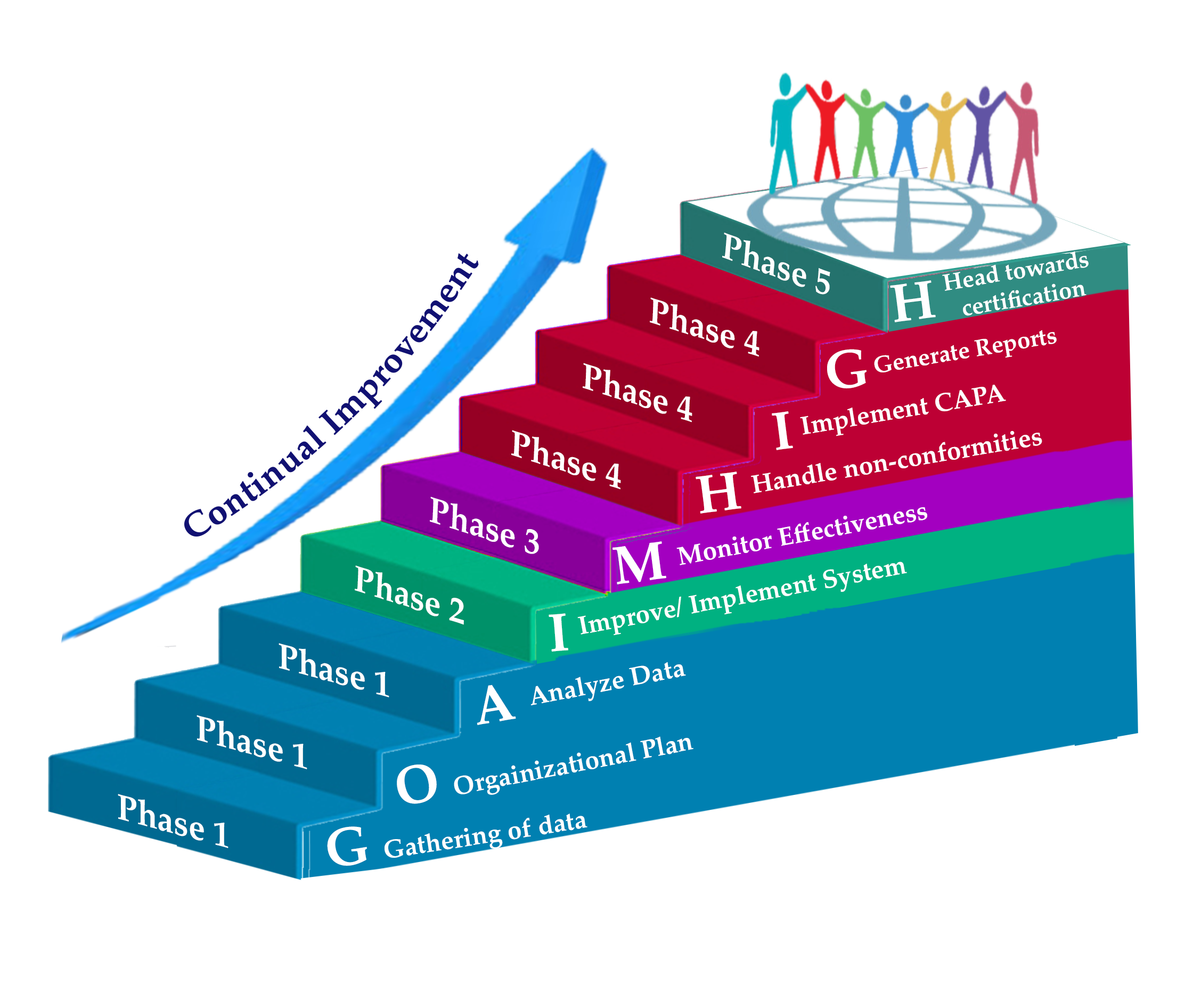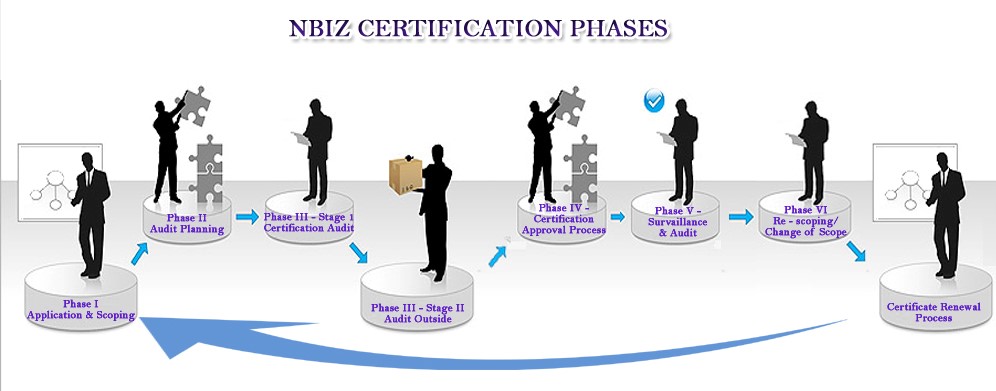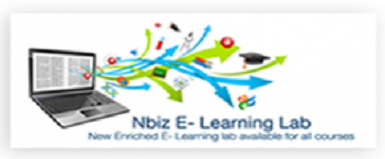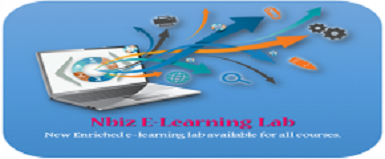ISO Consultation Certification Services

Our Clint Rating: 4.8 Start Based on 35 users
ISO 31000-Risk Management-Principles and Guidelines
When management of risks are being managed effectively, it is often not being noticed. When the management of risks fails, the consequences for the customers and employees may be significant and administratively high profile.
Managing a good risk management practice ensures that the organization can undertake activities with the knowledge that measures maximum benefits and minimize the negative effect of uncertainties on the organizational objectives.
ISO 31000 recognizes that organizations generally operates in an uncertain world. Whenever the organization attempt to achieve an objective, there will always be a chance that things will not proceed according to the plan. There will always be the chance that the organization will not be able to achieve the expected outcome in some scenarios.
On every steps on which the organization is involved or engaged in order to achieve the objective will always be connected to uncertainty. Each and every step has an element and representation of risk that needs to be managed and controlled.
According to ISO 31000, the organization will be able to reduce the uncertainty and manage the risk, by means of a systematic approach to risk management. The conventional definition of uncertainty is a state of being that involves a deficiency of information and leads to the inadequate or incomplete knowledge or understanding.
ISO 31000 can be applied/implemented by any organization to achieve the objectives at all levels throughout the organization. The standard shall be used by the organization as a strategic or organization level process of risk management to assist the decision makers to make informed choices, identify priorities and select the most appropriate action. This will be used to manage processes and procedures, operations, functions, projects, programs, products, services and assets.
Good risk management contributes to the achievement of an organization’s objectives through the continuous review of its processes and systems.
ISO 31000 is an international risk management standard. It can be used by any organization no matter what size it is or what it does, can be used by both public and private organizations and by groups, associations, and enterprises of all kinds. It is not specific to any sector or industry and can be applied to any type of risk.
The ISO 31000 standard outlines an approach to assist every organization to integrate risk management into their enterprise-wide risk management systems. Every organization is encouraged to consider the links between the foundations of the risk management framework and their organization objectives.
The ISO 31000 is an important tool for every organization in terms of the risk management, the implementation shall be supported by strong executive direction, a cultural change within the business and an underpinning system for it to make a real difference.

An organization’s risk management framework needs to include the organizations policies, objectives and its commitment to risk management alongside to its legislative responsibility.
The risk management framework should be embedded within the organization’s overall strategic and operational policies and practices, and take into consideration internal and external relationships, accountabilities, resources, processes and activities.
Senior Executives within an agency are responsible for providing the strategic direction of the agency. This approach, while usually long term, describes the vision for the management of risk and what overarching outcomes will be achieved.
-

Enhances the organizations approach to environmental protection, health and safety performance.
-

The standards will be able to establish and promote a basis for planning and decision making within the organization.
-

It can help the organization to improve the day-to-day operational efficiency, effectiveness on the governance activities, to lead and elevate the trust and confidence of the stakeholders.
-

It can help the organization to allocate, identify, treat risk and use risk treatment resources in order to minimize the organizations losses.
-

The organization will be able to improve the use of risk management controls and incident management activities.
-

To comply with legal and regulatory requirements along with the compliances with the international norms and standards.
The Nbiz GO-AIM-HIGH methodology was developed to provide the continuous success for every clientle’s project. It represents the Nbiz Team Consultants activities during the involvement from the initial phase until the last phase to conclude the project successfully.

The acronyms on the GO-AIM-HIGH methodology are already tested, applied and proven methods by the Nbiz Team Consultants during the implementation of the project. These are the activities performed which represents the corresponding phases related during the project implementation.
We are delighted to provide you the detailed explaination of our GO-AIM-HIGH Methodology on the below illustration.
G – Gathering of Data
The first step in the IMS Consultancy is gathering of data. In this, our consultants will be gathering all different types of relevant and existing records that are already with the client.
O – Organizational strength and weakness identification
The second step is aiming to identify the organizational strength and weaknessess.
A - Analyze and review documents, current processes and procedures
The third step in the IMS Consultancy is to conduct Gap Analysis of the current structure of the company which includes review of documents, processes and procedures in order to determine compliance to the required Management System standard. It is through this step that consultants and the company's key personnel can collaboratively formulate appropriate plan and activities to respond to gaps identified against the standard.
I-Improve, create and implement processes and procedures
The fourth step of the IMS consultancy is based on the gaps identified during step
1. Improvements and/or creation of documents meeting the requirements of the standard shall be initiated by the consultant in close coordination with the company’s key personnel. Documents shall include policies, manuals, procedures, forms/templates, instructions, etc. The documents created/improved shall be meeting the standard requirements and shall be suitable to the business activities and culture of the company. The company’s authorized representative shall review the documents and must be approved by the Top Management before issue. Additionally, Nbiz Infosol consultants shall guide companies to implement the set procedures and processes in order to comply with standard requirements. Appropriate trainings shall be provided to key personnel in order to provide or develop competence in the implementation of the system.
M-Monitor, check
Once standard is established, Nbiz Infosol consultants shall guide companies to monitor performance as per the required standard through performance measurement, check compliance and conformances through audits and inspections. Nonconformance shall be identified, reported and recorded accordingly.
H-Handle non-conformities
As part of the monitoring and checking, Nbiz Consultants shall assist companies in reviewing and re-assing their environmental aspects/impacts and occupational hazards and risks. The review and re-assessment shall be done on a regular basis or as per requirement of the ISO 14001:2004 and OHSAS 18001:2007 standards.
I-Implement corrective actions and recommendations
Once the nonconformities are identified, Nbiz Infosol consultants shall assist companies to identify root causes, implement corrections, corrective actions and preventive actions for nonconformance. Recommendations shall also be considered for continual improvement.
G-Generate reports
Reports shall be generated in all phases of the consultancy. Nbiz Infosol recognized that reports and records are essential to prove evidences of performed activities. Reports shall be properly channeled and submitted in correct and appropriate formats.
H-Head towards certification
Once, documents, procedures and processes are already established and implementation is considered adequate, Nbiz Infosol shall facilitate for the certification process of the companies. Nbiz Infosol consultants shall render support during all phases of the certification audits starting from planning with external auditors, during the actual audits, closing of the nonconformance and follow-up audits.
- Scoping on the required scope of certification. The general information required for the application and scoping are as follows:
- Initial System Study on the relevant field of certification applied and interested for, involved activities of the organization, no. of employees and the details on the available technical resources, any related subsidiary/entities.
- Any related information within the organization that will effect on the requirements to fulfill the conformity related processes, consultations on the management system, and requirements on seeking the certifications.
- Submission of the required and improved documents to obtain approval and certification from the authorized certification body.
- Coordinating Audit Plan – Our consultants will closely facilitate on the schedule communicated by the client. The audit plan will be prepared by the certification body and communicated to the client.
- Submission of the required and improved documents to obtain approval and certification from the authorized certification body.
- Facilitate to close NC’s – Our consultants will be assisting on developing and enhancing the identified non-conformances by the Auditor of the certification body.
- Facilitate in submitting non-conformities to certification body – Upon the identification of non-conformities, the consultants will be facilitating on clearing and completing all the identified non-conformities of the client to be submitted to the certification body.
- Co-ordination for approval of non-conformities and releasing of certificates from the certification body and providing the certificate the client.

Nbiz Infosol Certification is in co-ordination with many leading certification body which are internationally recognized to help our client on achieving any relevant ISO Standards.
The phases on the above diagram explains only the commonly used processes/activities in order to provide a clear summary explanation/objective during the certification process.
Nbiz Consultants Team will facilitate mostly on gathering the requirements, coordinating on the schedule, as well as submitting the requirements to the certification body.
Nbiz Infosol will not have any control/influence on the schedule/decision by any Certification Body.
Kindly note that there are extra phases involved on each relevant standards that the Certification Body Representative may add and apply whenever necessary.
1. Phase I - Application and Scoping on the required certification.
The general information required by the Certification Body Representative for the application and scoping are as follows:
- Initial System Study on the relevant field of certification applied and interested for, involved activities of the organization, no. of employees and the details on the available technical resources, any related subsidiary/entities.
- Any related information within the organization that will effect on the requirements to fulfill the conformity related processes, consultations on the management system, and requirements on seeking the certifications.
2. Phase II - Audit Planning
- Identification of Audit Criteria, scope and objectives.
- Audit Schedule preparation
- Co-ordination with clients regarding audit details and logistics.
- Preparation of checklists, audit formats, etc.
3. Phase III – Stage 1 - Certification Audit
The Certification Body Auditors will perform the following:
- Certification Body Representative will gather detail for the company’s background/information and reviewing the existing documents to understand and evaluate the company’s set objectives, policies and procedures.
- Assessing the processes in place and comparing on the set objectives is being facilitated by our consultants in order to know if it is aligned within the organizations objectives.
Phase III - Stage II – Audit (On-site)
- Opening Meeting
- Audit execution and identification of non-conformities
- Closing Meeting
- Follow-up Audit
- Audit Closure
4. Phase IV - Certification approval process is to validate the organizations system compliance and implementation. The certification can be a useful tool to boost the company’s credibility. This will also demonstrate that the products and services are being met along with the customers’ expectations. On every organization the certification is a legal or contractual requirement.
5. Phase V - Surveillance Audit - are being performed after a year of the certification. The purpose of the surveillance audit is to check if the standards are being implemented and maintained.
6. Phase VI – Re-scoping/Change of Scope – this is to continuously evaluate the continual fulfillment and improvement of all the required and relevant documents within the management system standard. In case there are changes to be implement on the new services/processes/products or regulatory authority’s requirements, changes required from the Top Management the Phase III – Certification Audit shall be applicable.
7. Phase VII – Certificate Renewal – the re-certification renewal demonstrates that the organization is continuously striving for improvement into the implemented Management System in order to achieve and meet the client’s satisfaction and regulatory authority’s requirements/expectations.
- Nbiz Infosol can assist your organization to acquire any relevant ISO certifications which is well-known internationally. It will generate additional business opportunities, exhibit the organizations compliance and commitment to the best-practices in any industries in order to be more competitive in today’s market.
- Nbiz Infosol consists of professionals which are high level and practically experienced and very senior Project Directors along with our well-experienced and knowledgeable Senior Consultants.
- Nbiz Infosol location advantage within the Emirates on the following: Abu Dhabi, Dubai, Al Ain, Sharjah, Ajman, Ras Al Khaimah and Fujairah (We have successfully completed many and different projects locally and also internationally).
- Nbiz Infosol strongly promotes and implements the facilitations on the relevant Management System not only for the sake of certification but to really make a difference in the processes and procedures that will be implemented throughout any organization.
- Nbiz Infosol consist of some project members which are also EFQM International Assessors this can add value to the assignment as Abu Dhabi government is highly recommending Organizational Excellence program across Abu Dhabi Emirate (and UAE).
- Nbiz Infosol prices are very competitive in the market without compromising our quality of service which in return provides our company’s commitment and to maintain repeated orders from our clients.
- Nbiz Infosol is driven by professional Senior Consultants with good cross functional knowledge of the other standards such as ISO 14000, OHSAS 18000 which will also add value to the project.
- Nbiz Infosol can be a good channel to assist the standardization within the organization. It will help to promote worldwide trading, encouraging rationalization, maintaining quality assurance and environmental protection, as well as improving the security and communication at all levels within the organization.
- Nbiz Consultants Team will work collaboratively and will be able to support the organization within the entire certification process.
- Nbiz Consultants Team are fully experienced and exposed in the consultation, implementation, and facilitation for Risk Management Principles, Framework and Process.
- Nbiz Consultants Team have the most extensive invaluable hand-on experience of working under various roles and capacities in managing and mitigating risks.
- Nbiz Consultants Team drives the standardization within the organization to promote encouraging rationalization, maintaining quality assurance, environmental protection, as well as promoting to achieve a minimized risks at all levels within the organization.
- Nbiz Consultants Team will be closely monitoring and continually improving the risk management processes on any related services.



 Special Offers
Special Offers
 GET OUR BEST DEALS!
GET OUR BEST DEALS!